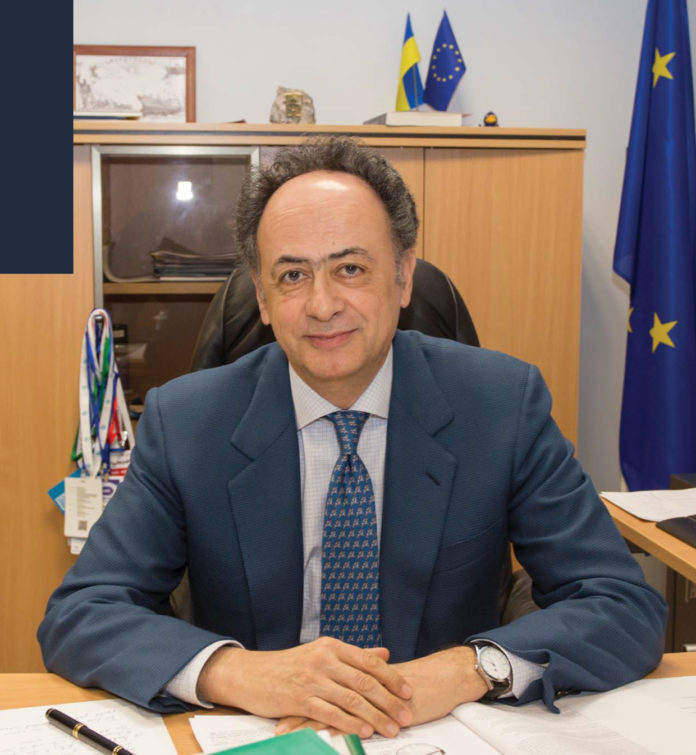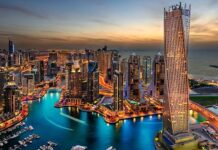I believe that Ukraine has An exceptional potential. You Have the best agricultural Land in Europe, you have an Unbelievable tourist potential, You have a sea, you have Mountains and you have An incredible civil society.
In 2017 a significant breakthrough in the European integration path took place, thus Ukraine received visa-free regime with the EU countries. What awaits Ukraine in 2018? Are we doing enough to become a part of the EU? Exclusively for “Fashion of Diplomacy”, Ambassador, Head of the Delegation of the European Union in Ukraine Hugues Mingarelli informs about all these things.
Last year, Ukraine got a visa-free regime with EU countries. What do you expect from Ukrainian-European cooperation this year?
— The most important thing that Ukraine and the EU can do together in the next few months is to ensure the implementation of the Association Agreement. Ukraine must accept all EU standards. If you succeed, the Ukrainian economy will become part of the EU common market, which means that your economy will be part of the largest trading bloc in the world. And at the moment, your country has a fantastic activity to make progress in all areas of the economy. In order to sign this agreement, we all are mobilized; everyone at our mission is working on this issue. This is our priority. In Ukraine, there are currently crucial issues to be resolved, I mean jobs creating, improving the living standards of the population, but all this is remedial. Everything has its own term to be completed.
If to talk about this agreement, what has already been implemented by the Ukrainian part?
— You have already been able to make significant progress in harmonizing of legislation in certain areas, such as state control over entrepreneurship, such as public procurement, sanitary and phytosanitary measures. In certain areas, you have made some progress in aligning your legislation with European standards. In other areas, such as infrastructure and transportation, taxes and customs, the situation is much more complicated. Therefore, from our part, we will do our best to support the reformist forces — those ones that have decided to use the EU standards in your country.
You have mentioned that everyone in your mission is working for the result. Can you say the same about the Ukrainian part?
— Until now, not everyone is convinced of the importance of this Agreement. Of course, some of your ministries are quite mobilized and work on the outcome, the Ministry of Finance, the Ministry of Infrastructure and the Ministry of Health to name. In the Verkhovna Rada, at the Committee on European Integration, we work very well with the chairman of the committee, but in other committees the situation is somewhat more complicated.

One of the German government top officials said that he does not see Ukraine in the EU. Can you comment these words?
— I can just answer with the facts. First and foremost, Ukraine is a European country. It is one of the largest European countries in size, and it is located in the heart of the European continent. This is a fact. Talking about relations with the EU, Ukraine is one of the most important partner countries for us. Ukraine has one of the most upto-date agreements with the EU and Ukraine is one of the most important beneficiaries of the EU. And besides that, I can say that in the EU treaty there is Article 43 and this article states that any European country that fulfills a number of conditions related to the basic principles of personal freedom, to the governing of law, to the civil liberties, may fi le application for the EU membership. That’s my answer.
You have already solved the problem of refugees. How did you manage to do that?
— Well, first, the problem has not yet been completely resolved, and it is still a serious challenge for several states in the EU. The second point is that this problem can only be solved by having agreed it with Turkey. Turkey has decided to provide asylum to refugees from Syria because of a number of the EU preferences. Thanks to this agreement with Turkey, we stopped the flow from Syria through the Balkans. However, there is the so-called Central Mediterranean route, through which refugees are mostly coming from Libya to the Italian island of Lampeduza. Last year, we also managed to reduce this flow thanks to a series of diplomatic measures. Finally, there is the third refugee route, which is the most difficult to control — this is the route between Morocco and Spain. This is a serious problem that will not disappear tomorrow.
What are the main challenges for the EU except this problem?
— First of all, we must tackle the problem of terrorism, and this problem has already affected many EU countries. The second problem is the economic crisis that has not yet been overcome, for example, in such country like Greece. The third problem is Brexit that as you know, is under negotiations. And the fourth problem is the presence of populist political forces that are becoming more aggressive in some parts of the EU and casting doubt on the basic values of the EU.
Also, there is a problem of separatism, as in Catalonia. But Catalonia was denied admission to the EU. Do you think this is the best way to stop separatism?
— First of all, Catalonia was not denied. Catalonia has been explained that it cannot automatically join the EU. Catalonia must first apply for membership. Catalonia must meet certain conditions. And the consensus on its accession must be among all the EU members and only in this case we would have accepted Catalonia. But at least one member country will never agree.
What were your first impressions about Ukraine?
— For the first time in my life I came to Ukraine in 1992. It was years ago, so I can say what impressions about Ukraine I have now. I believe that this is a country with exceptional potential. You have the best agricultural land in Europe, you have an unbelievable tourist potential, you have a sea, you have mountains, and you have an incredible civil society.
Do you travel a lot around Ukraine?
— I am trying to travel to all regions of Ukraine for a better understanding of social and economic realities in order to share information about the importance of cooperation between Ukraine and the EU.
What is your favourite city in Ukraine?
— I have many favourite places, but the most impressive are: Kyiv, Kharkiv, Ivano-Frankivsk and Mariupol. I’m sure that I love Ukraine.
Do you think we do a lot for promoting our culture in Europe?
— Unfortunately not. You have a lot of talented people in all spheres of culture, but they are not known in Europe. And we will as much as possible contribute to the promotion of Ukrainian culture in Europe.
At the end of last year you were recognized as the most influential foreign diplomat in Ukraine. What do you think about this?
— I believe that this fact testifies the importance of the EU for Ukraine, majority of the Ukrainians has been saying for the last 15 years that they want to join the EU. And most Ukrainian political elites say the same thing. That’s why the EU means a lot to you. And that is really good…













